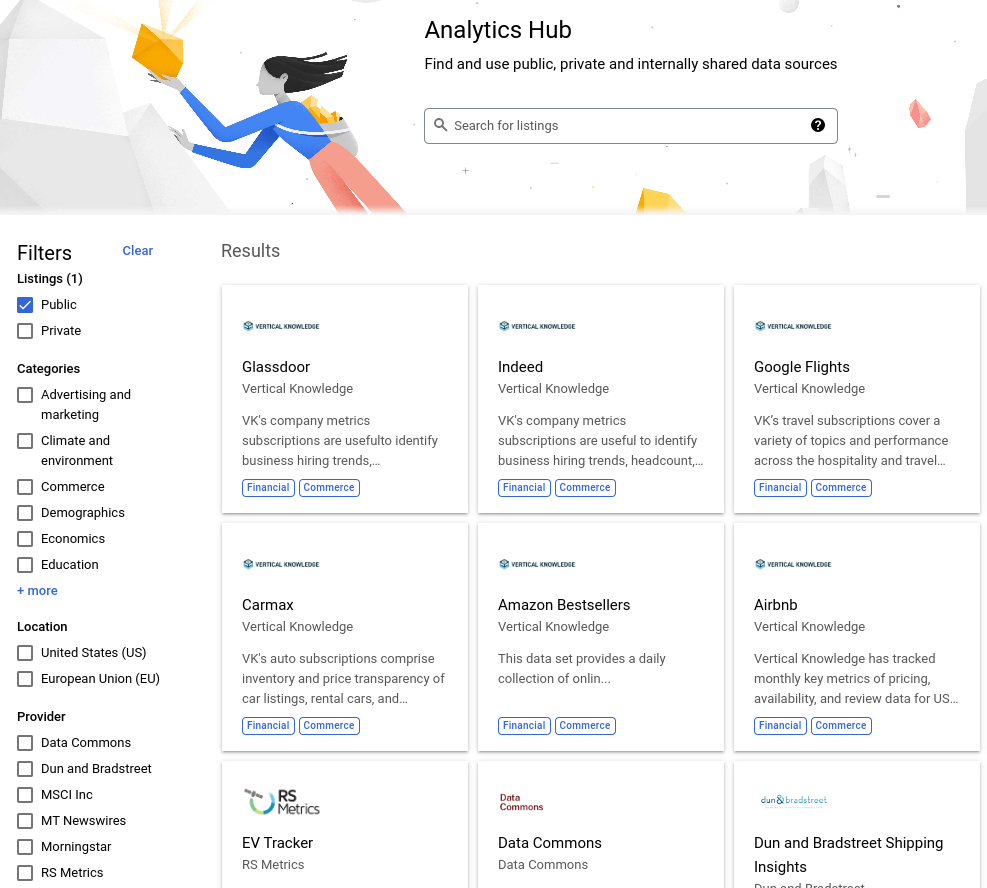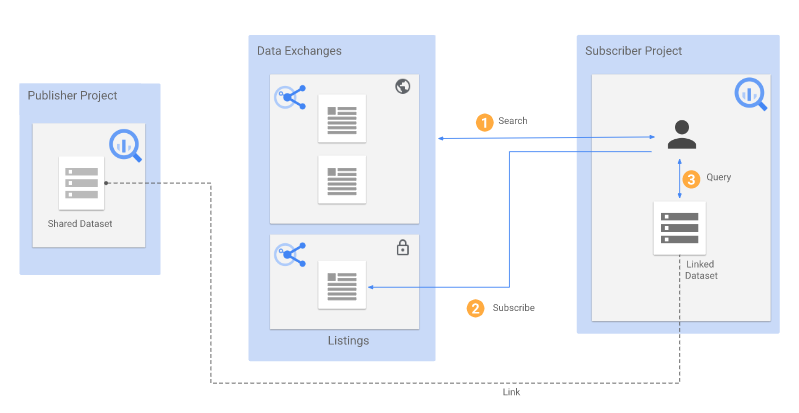This article is written by Rik Pauwels, Senior Data Architect at Devoteam G Cloud
Monetizing datasets is one of the most direct ways of data activation you can think of but weirdly enough hardly used by anybody. Why spend all the effort of collecting, cleaning and processing data just to use it for an internal dashboard? Open your own data shop and tap on new revenue streams without extra effort.
This article will explain Analytics hub and how it can help you safely sell your data using Google Cloud for extra revenue. Disclaimer: This article will solely focus on the technical side of things and will take abstraction from the legal aspect. What data can or should be sold is left out of scope.
Analytical data
When companies talk about buying data they mostly talk about complete, clean, analytical style datasets about core concepts of their business. An energy supplier might be interested in having data on when electric vehicles charge and for how long to predict future usage patterns. It might be very hard for them to track this so they are most likely interested to buy it from a company that hosts the charging stations.
Another example is a taxi company that can greatly benefit from datasets describing how many people take the train or the aeroplane to predict how many taxis are needed at the train station or airport.
Storing analytical datasets on Google Cloud is done in BigQuery because of the attractive pricing policy and the wide range of features. One of the new features is called Analytics Hub and this will make it much easier to monetize your existing BigQuery datasets.
Analytics hub
Analytics hub is one big marketplace for data, even though it is still in preview, it already has quite some data providers. Some datasets in analytics hub are free, some are only available via a licence of the provider, and others are only visible within an organisation but they are all searchable via the same search bar. Data asset providers can also tag their assets so you can immediately see what the data is about. (see figure 1).

Analytics hub works as follows: when you want to expose your data you create a listing. This is an object that contains the description of the dataset, sample queries to use it, links to relevant documentation and any additional information you like to add. This listing can either be private or public and a public listing can be free or commercial.
When creating a public commercial dataset people can find the information you expose in Analytics Hub and will see a button that, when clicked, links them directly to your sales team.
When the licence is agreed the requestor gets automatic access to a read-only dataset containing all the bought data assets. This read-only dataset points directly to the original data of the publisher so it will always be in sync.
The only cost for the provider is the cost of storing the data and this is unaffected by the total number of people with a licence on the data. The data user will pay for the licence and for the queries ran against the now available data as they would have with other BigQuery tables.

Monetizable data assets
Even in preview mode Analytics hub already supports a wide list of data assets that can be monetized through the platform. At the time of writing, you can already expose Authorized views, Authorized datasets, BigQuery ML models, External tables, Materialized views, Tables, Table snapshots and Views.
Conclusion
Want to make free money? Now is the time to jump on Analytics Hub and make data available on which you’ve already spent a lot of time processing. Simply make a listing and you are done! Be ahead of the wave and make yourself visible as a reputable data provider before everyone else jumps on the train.
Interested but you would prefer to have it set up by an expert? Contact us!